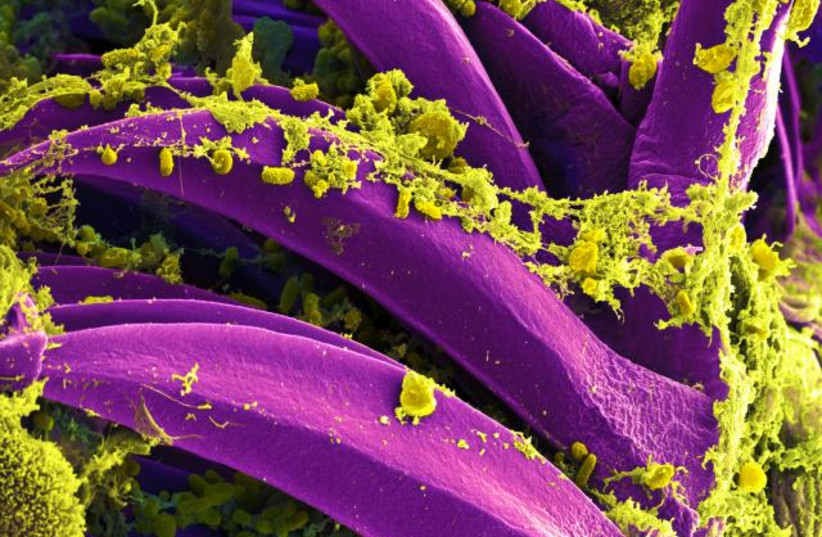
Israeli researchers have developed the world’s first vaccine against a deadly bacterium, utilizing the same system used to combat COVID-19, according to a joint statement from Tel Aviv University and the Israel Institute for Biological Research.
The team created the first mRNA-based vaccine against a deadly, antibiotic-resistant bacterium that showed 100% protection against infection in animal models.
Yersinia pestis is the bacterium in question – the cause of the bubonic plague. The vaccine that was developed focuses on the pneumonic plague variant.
According to Prof. Dan Peer, Tel Aviv University’s vice president for Research and Development, the bacterium “spreads from person to person and causes respiratory illness, making it particularly difficult to develop a vaccine against it.”
Dr. Uri Elia, a researcher from the Israel Institute for Biological Research, said: “Viruses rely on a host cell to survive and replicate. They infect the cell with an RNA molecule (mRNA) that contains instructions for making viral proteins.”

First mRNA-based vaccine against bacteria
“Bacteria, however, are a different story: They produce their own proteins and do not rely on human cells,” Elia continued. “Moreover, due to the different evolutionary paths of humans and bacteria, their proteins are very different from ours.Using this, researchers developed an mRNA-based vaccine for the first time to combat the bacterium that causes the black plague, demonstrating through animal models that it is possible to vaccinate against the disease with a single dose effectively.
“We tested it on several animal model strains and found that, after two vaccine doses, we achieved 100% protection against the pneumonic plague,” Peer said.
“The animals infected with the plague did not get sick at all. The success of the current study paves the way for a whole world of mRNA-based vaccines against other deadly bacteria,” he added.
According to Elia, “The plague – a disease that killed about two-thirds of Europe’s population in the Middle Ages (known as the Black Death) still resurfaces occasionally today, for example, in Madagascar. So the potential for a pandemic still exists.”
“Further, this bacterium concerns us as a potential agent of bioterrorism. If one of our enemies tries to use it against us, we want to be prepared with a vaccine,” he said.

No comments:
Post a Comment